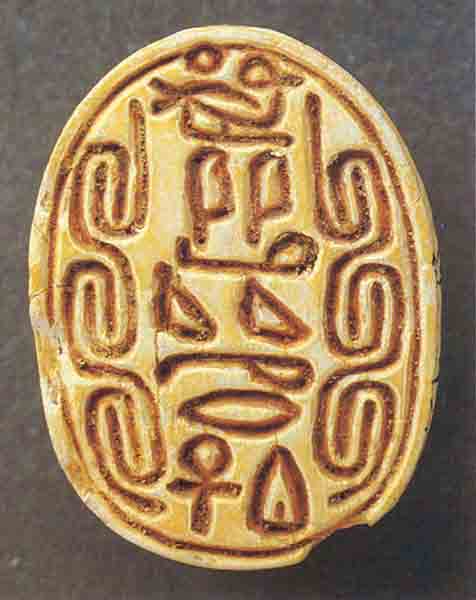Image Details

Haifa Museum
A number of similar Jacob scarab seals have been found, suggesting not only the close connections between Canaan and Egypt (the Bible describes the Israelites as descendants of Jacob, who moved from his native Canaan to Egypt, where he lived out the latter part of his life), but also the commonness of the name Jacob in the first quarter of the second millennium—the period assigned by Kenneth Kitchen to the patriarchs.
Jacob and other names in Genesis (Isaac, Ishmael, Joseph) are what scholars call Amorite imperfectives—a group of certain names beginning with “i” or “y” (the name Jacob, for example, is the English form of Ya‘akov). Such names, Kitchen points out, while common in Genesis and extra-Biblical Near Eastern sources dating to the early second millennium B.C., become increasingly rare later on; they are almost absent from Near Eastern archives of the first millennium B.C. and later. The names of all the patriarchs but Abraham had general currency only in the era from about 2000 to 1750 B.C.—suggesting that their stories derive from that period and not, as many scholars believe, from more than a thousand years later.
